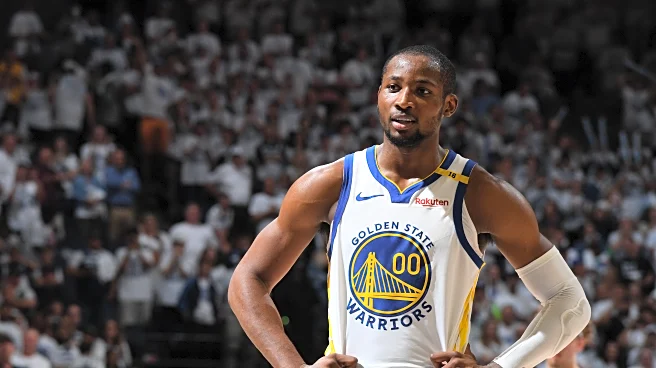Golden State Warriors wing Jonathan Kuminga is willing to take a one-year qualifying offer if he doesn’t get a contract he likes from the Golden State Warriors, according to his agent.
On the most recent Hoop Collective Podcast, Kuminga’s agent Aaron Turner described the tension between his client and the Golden State franchise in an unusually candid interview:
If [the Warriors] want to win now, if you want a guy that’s happy and treated fairly who is a big part of this team, we believe, moving forward,
you give him the player option. You do lose a little of that trade value [giving that up]. But if it’s about the here and now, you give him that. You don’t get a perfect deal, but you get a pretty good deal and he gets to feel respected about what he gets and we all move on and worry about winning, helping Steph [Curry].
When pushed by Windhorst about the Warriors simply doing their due diligence as a team to “squeeze” Kuminga in a relatively dead free agent market, Turner replied that the Warriors can trade Kuminga or sign-and-trade him to another team if they don’t want him on the roster. He also suggested that Kuminga wouldn’t necessarily be in the best mind state if the Warriors didn’t offer Kuminga what he considered to be a fair deal before the season:
I think it is important when you have a player this important as JK to feel good about the business so that the basketball can be the focus. If the winning didn’t matter and it was like, hey, whatever, then I would agree that how he feels is probably pretty irrelevant. But I think he’s pretty important. They won’t let them go. And if you’re going to tell somebody, “Your contract’s over with us and you have a team that wants to give you a $100 million or so in a player option and a starting role, but we’re not going to let you go and we’re not going to give you a great deal. We’re going to give you the deal we can take advantage of”… I wouldn’t ask somebody to necessarily be happy about that. I know I personally wouldn’t really be very happy about that.
Kuminga isn’t an elite NBA player. Perhaps especially because of that fact, the very public hashing out of contract negotiations is significant in an NBA labor landscape that has continued to tip the balance of power ever-more slightly toward players and away from teams and owners. If players that would be at best a decent role player on a good team believe they have enough leverage for their agents to talk about their negotiations publicly, it may signal that balance of power is tipping even further.
















